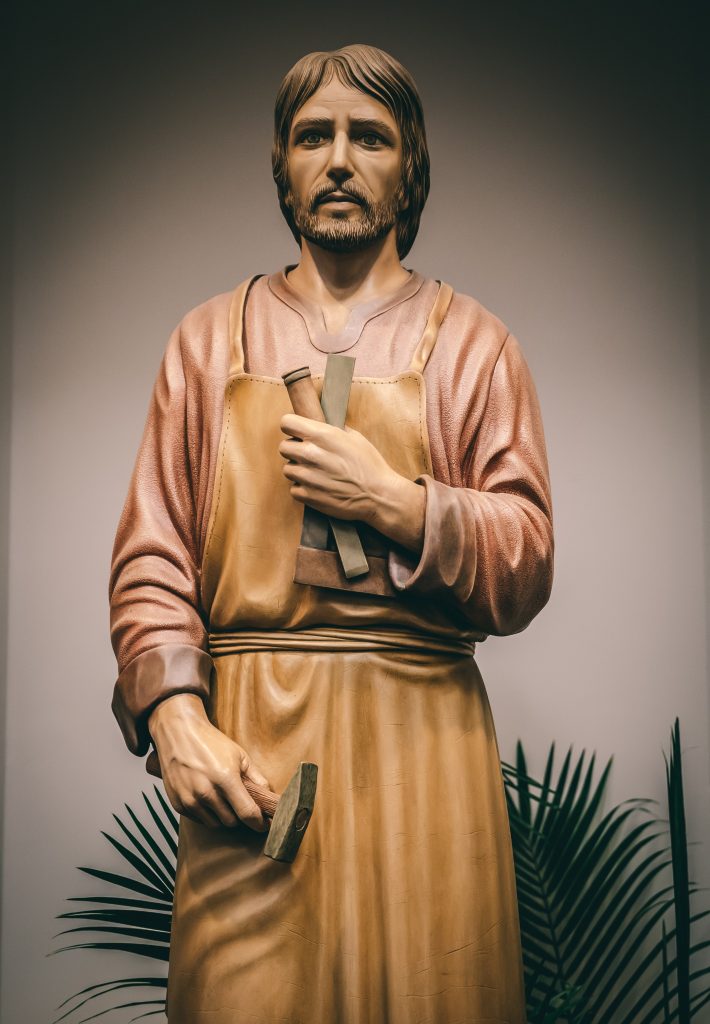The ties we build in charity are forged with the Lord’s grace
“Let all that you do be done in love.” (1 Corinthians 16:14)
God’s love expressed through friendship is a topic I have been wanting to write and share with readers, especially my dear family and friends. It is based on my ties with many people from around the world whom God has gifted me to meet and know them.
These are very real experiences and it is my conviction for many years it was God’s plan for me. Especially from the time when I was forced to leave my homeland, family and all my loved ones behind in Vietnam in 1981 in search of freedom and to pursue my vocation to the priesthood (Read my story). This, I personally felt then, when I had just entered my twenties.
I eventually settled in Perth in Western Australia in 1982, which has been my second home in the last 40 years. During that time, I’ve also lived in many other cities in my adopted country: in Sydney when I joined the Redemptorist Order and then in Melbourne, where I was ordained priest in July 1994. I then returned to Perth to continue my studies in Psychology, while also working in ministry at the Redemptorist Monastery in the north of the city.
In the places and cities I have lived in, I was fortunate to always meet good friends who wholeheartedly supported me spiritually and materially. Among them, some have become my benefactors who have been generous and love me with sincere hearts. I cannot name every single person, but I cherish and engrave deeply in my heart each of them with sincere thanks and deep gratitude for what they have given me. I always remember these wonderful friends and benefactors in my prayers and in the Masses I celebrate. This is my way of expressing gratitude to them.
I have met many of them over the years in places and cities I have visited or studied, particularly when I studied Moral Theology at the Alphonsian Academy in Rome City, Italy (1999-2003). But distances and different time zones have prevented me from doing so since then.
There are times when I think of them and wish for another chance of meeting all of them again. It is for this reason I am writing this article so that if you read it, you will understand how much I want to express my deep gratitude to you. You are always in my heart, and I will keep each one of you in my prayers.
I am no longer in touch with many of these friends and I don’t know where are they now, what they are doing and what their life is like. But even so, in my heart and in mind they are still very much alive, and I will never forget them and all the things they have done for me. I always pray to God and ask Him to act on my behalf to bless and repay them abundantly.

God forges new friendships
I have been in the United States since August to attend the Fall 2022 Sabbatical programme at Mercy Center in Colorado Springs. While here, I have been able to interact with some Vietnamese people I have never met before. It was thanks to my family members and dear friends who have resettled in the United States that I was able to get acquainted with them. But I know it was God who brought us together.
I meet them only on weekends as I have to attend classes from Monday to Friday. These new friends took me and another Vietnamese priest, a close friend from Australia, to visit some of the more well-known attractions in Denver and the State of Colorado.
During my travels, whether far or near, I am always fortunate that God’s grace has always allowed me to have special meals with new friends for us to learn and get to know each other. Thanks to such occasions we develop a deep understanding of one another and eventually become close friends.
In my current visit to the United States, I am extremely grateful to those I’ve met for the first time for what they have done for me, sacrificing their precious time to take me and my friend out to many interesting places in Colorado Springs for an unforgettable experience. The sights were amazing and made me think about God’s wonderful creation in His love for mankind as members of the human family.
God certainly loves each one of us in a uniquely special way. But He created a universe so mysterious and wonderful for everyone to enjoy that I don’t think there are words to adequately describe all the splendour of nature. In the past two months, I have visited and witnessed its beauty from the waterfalls at Seven Falls to mountains and hills covered with tall pines. We also visited “Garden of the Gods” and “Pikes Peak” which rises 4,340m above sea level, and the Rocky Mountain National Park, a famous landmark of not only Colorado but the entire United States.
I also had the chance to see the white snow that was recently formed in the soaring mountains, the “Sprague lake” where water had begun to freeze, and the hot pools of the Strawberry Park Natural Hot Springs. All these scenes were so magnificent and vivid that they took my breath away and I could not but raise my voice in praise of God.


God’s marvelous creation and love for mankind
The trip to these places was approximately a four-hour drive from Denver and my companions and I were so ecstatic by what we saw that it compelled us to contemplate God’s great work in creating the universe. All of us must sing praises to Him for He made a beautiful universe for all of us to marvel at.
I thank God for His great love for us and also thank each one of you, my dear friends, for permitting me to experience His providence and love through your special friendship, love and affection. I am truly blessed. I am truly grateful and may God unite us as brothers and sisters in His great family so that we may become witnesses of His love in our world today.
May God continue to bless our friendship and the affection that we have for each other. And may God help you, whether priests, religious or lay people, to become God’s witnesses of love and mercy by the way we live, and by the love that we have for each other. Finally, may we do everything for others out of love (1 Cor 16:14). Amen.
Written for my dear friends, past and present. Loving all of you.

Main Image: Thoma Boehi, Pexels
Other Images, Fr Peter and friends, and Mercy Center staff






